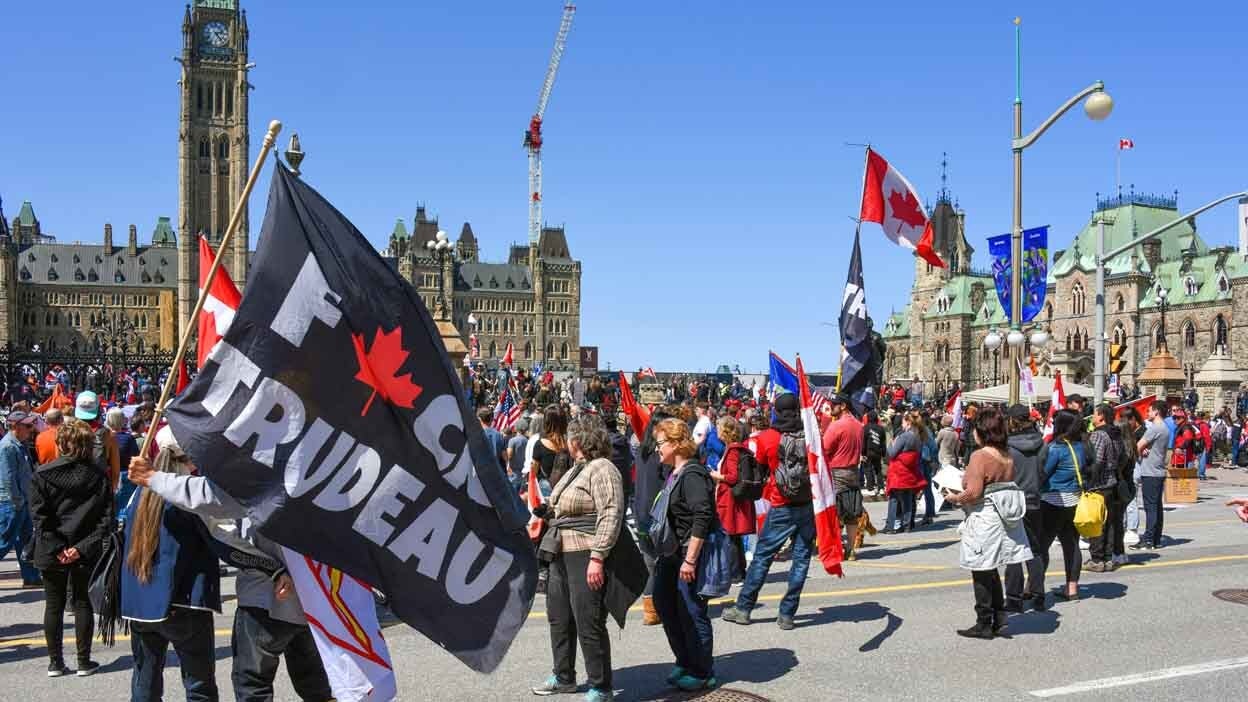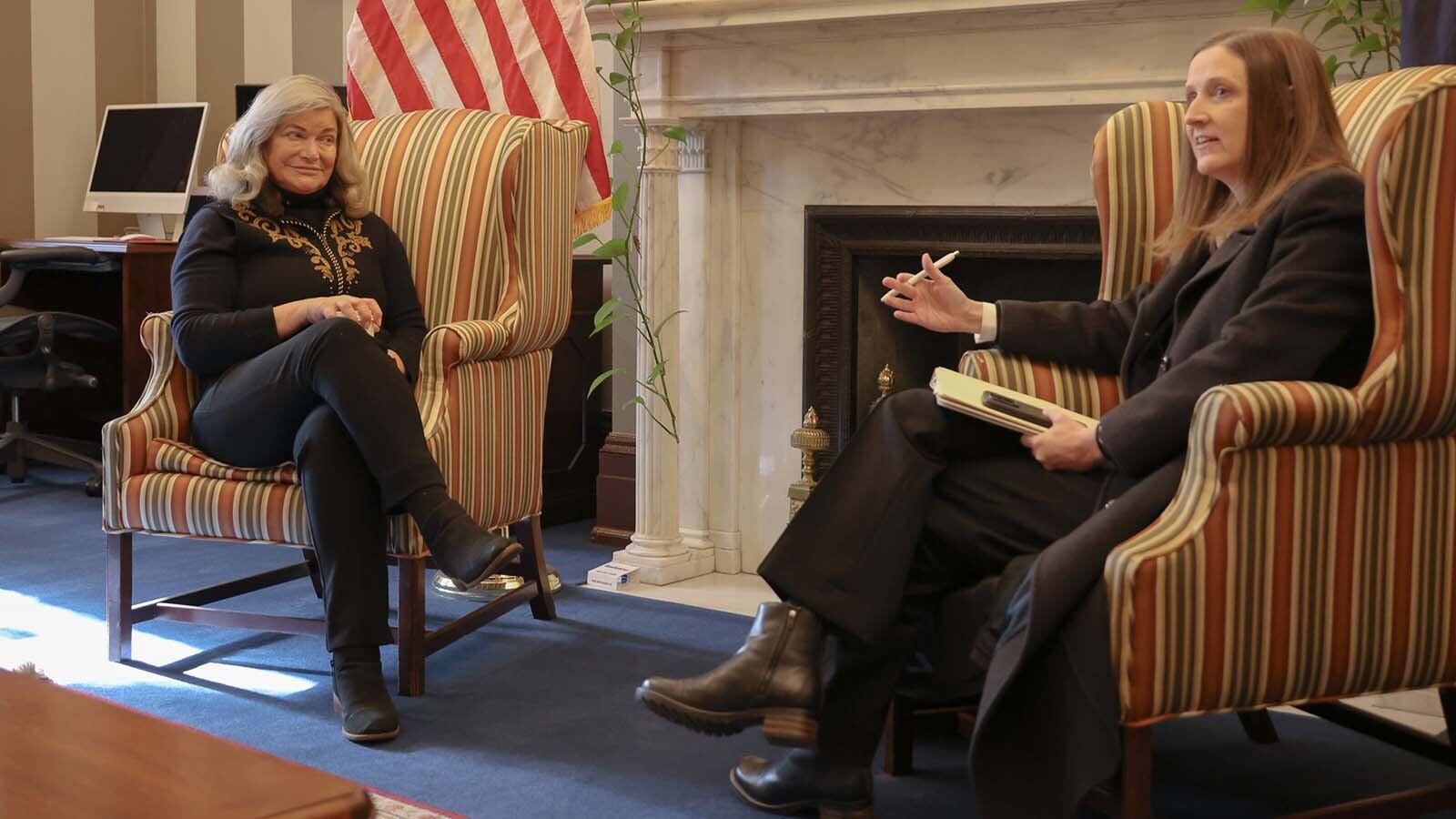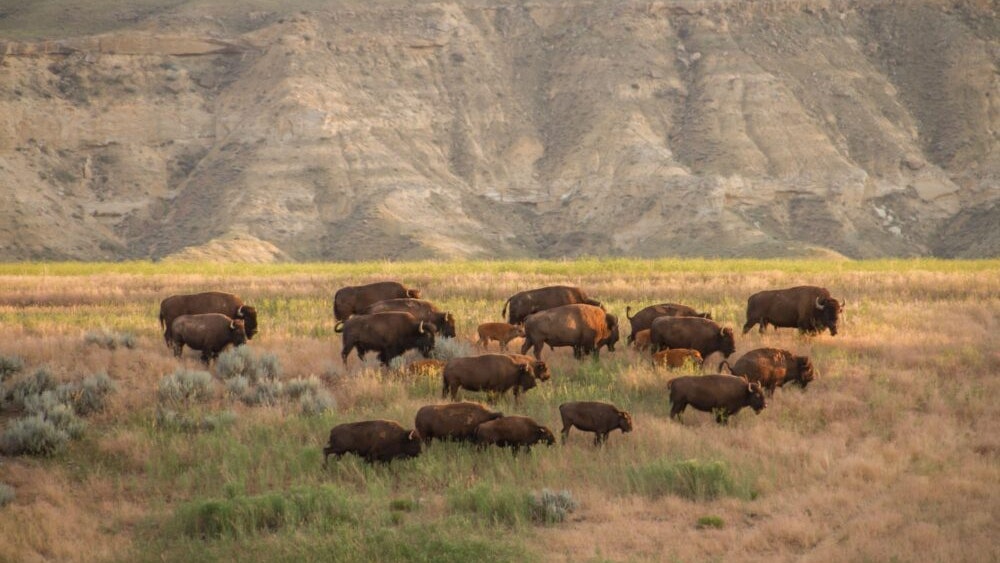Many conservatives who live in Alberta, Canada, have had a gutful of what they say is their government’s heavy-handed policies and are backing an effort to secede.
They want to carve out a new border and become the 51st of the United States of America.
The issue has been simmering for years, but when the Canadian government froze bank accounts and took over credit cards of people who participated in or donated to the “Freedom Convoy” — a trucker protest against COVID-19 policies that blocked streets, bridges and a border crossing in Ottawa, Ontario, in early February 2022 — simmering emotions reached a boiling point.
The bank accounts and credit cards were released by Canadian banks after about two weeks, but the matter is far from resolved.
Disgruntled Canadians cite government overreach on gun control, high taxes and authoritarian control of Alberta’s abundant natural resources.
An active Change.org petition started in October 2019 has a goal of 100,000 signatures. As of June 5, 2024, it had 52,543. Although the petition doesn’t directly say it was initiated by the Alberta 51 Project, it features the group’s logo. A Change.org petition is not an official document; to petition onto the Alberta, Canada, election an effort would need to go through the province’s official elections office. The agency currently reports no active citizen initiative petitions
According to media reports, Canadian officials say becoming part of the U.S. is a longshot at best. Polling indicates fewer than a third of Albertans support the effort.
Along with winning a vote, the Canadian Parliament would have to amend its constitution to allow for secession.

We’ve Heard This Song Before
On this side of the border, many in the United States support their fellow conservative Canadians. But the odds seem equally as long because those same conservatives are among those who have blocked statehood attempts by the District of Columbia and Puerto Rico under Article 4 of the U.S. Constitution.
The last two states admitted to the Union were Alaska and Hawaii in 1959.
Closer to home in the Cowboy State, an effort by residents in Weld County, Colorado, was pushed in 2021 to secede from Colorado and become part of Wyoming.
“Weld County, WY is a group of Weld County citizens who have a common desire to maintain their way of life,” the group’s website states. “This initiative is to place a measure on the November 2021 ballot. The voters of Weld County will vote as to whether to instruct Weld County Commissioners to engage and explore the annexation of Weld County with the State of Wyoming’s Legislature.”
The effort ultimately failed, but like those living in Alberta, the people behind the Weld County movement said they feel more aligned with Wyoming on issues like gun rights and support for the oil and gas industries.
Weld County borders Wyoming to the southeast.

Trickle Down To Wyoming?
How this might affect Wyoming’s economy is difficult to predict, said Anne Alexander, a University of Wyoming College of Business economist and director of outreach and engagement for the Center for Business and Economic Analysis.
Alberta, often referred to as the Texas of Canada, has 4.5 million residents and is the country’s leader in oil and gas production. It’s also a strong competitor in the production of lumber and many agricultural commodities.
One major difference is most of Canada’s agricultural production is geared toward export. For instance, most of the beef produced in the United States is consumed here, as opposed to Canada, where 90% of the beef grown there is destined for export.
Alberta exports large amounts of lumber, canola, wheat, barley, dry peas, potatoes, beef and pork.
Alexander said Wyoming has a similar economic structure and has an existing strong trading relationship with Alberta under the North American Free Trade Agreement.
“Wyoming and Canada have a strong trade relationship, and as a state we do quite a bit of trade with Alberta,” she said. “Oil and gas flow freely between the two countries and I think what it would come down to is would they need our infrastructure for transport of their goods? I think they would.”
Details, Details
A lot of intricate details would have to be negotiated, which would be a long process.
Alberta would have to ditch its current tax structure and adopt a severance tax. It would have to agree to pay royalties on mineral extraction to the U.S. federal government, negotiate use of roads and pipelines, change the way it sells timber on federal land and many others, a process that could take years.
Another thing Alexander pointed out is that Alberta has large, beautiful national parks similar to Wyoming. Management and maintenance of parks and other public lands would be another matter of negotiation.
“Another thing that really strikes me is, I don’t know what their potential exit would do to free trade in general between the two countries,” she said. “It might create some Brexit-type barriers to free trade that didn’t exist before.”
The barriers Alexander referred to (Brexit) happened when the United Kingdom left the European Union in January 2020. It took four years to negotiate the terms of departure.
Would Other Provinces Follow?
In his 2015 book, “The Accidental Superpower,” economist and American author Peter Zeihan wrote that Alberta would be better off as the 51st state and that Saskatchewan would likely follow suit.
"Alberta as a U.S. state would not simply be rich — the richest in the Union, in fact — but would have a vibrantly well-financed and diverse economy that would put its former (and a lot of its newfound) countrymen to shame," Zeihan wrote.
Comments from Canadians on Reddit about the matter range from, “This is horseshit, I’d rather not,” to, “The U.S. dollar is cool, but everything else blows.”
A Facebook page titled “51st State Alberta Statehood Movement” says the aim is clear: “Hold a referendum to A, exit confederation; B, deliver a State of Alberta Constitution to U.S. Congress; and C, apply for admission to the Union.
“A successful referendum is the first step in initiating official talks via political channels. Thus, the Alberta Statehood Movement supports those who labor to those ends, including political parties and politicians who labor to join the Union and attain permanent free trade as a sovereign and free member of the Union.”
Editor’s note June 5, 2024: This story has been corrected and clarified to report that the petition to make Alberta the 51st U.S. state is an online Change.org petition and not an official initiative effort through the Alberta elections office. Also, a sentence saying a vote on the proposal was set for June 30, 2023, was deleted. That was incorrect and the issue in fact was never set for a vote. Cowboy State Daily apologizes for the incomplete and inaccurate information.





